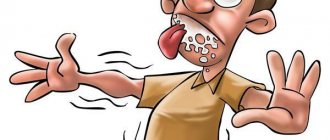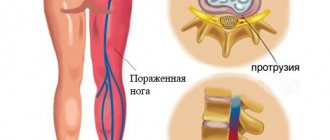Depression. Part II: how to treat it and how not to treat it
Continuation. Part I was published on December 23, 2014.
Continuation of the educational program about depression, from which the reader will learn how psychiatrists, psychologists, psychoneurologists and psychotherapists differ from each other, how they select therapy for different patients, what the consequences of refusing medications are, when pills and other medications become dangerous, how these medications work, why not you need to drink Corvalol and Valocordin, and also self-medicate.
Where to run
One of the reasons why very few patients with depression in our country ever reach a specialist is that almost no one has a clear understanding of what kind of specialist is needed here?
“People, firstly, are afraid of all those whose profession names contain the root “psycho,” and secondly, they often get confused with them,” confirmed Svetlana Minskaya, psychiatrist, psychotherapist. — In short, the gradation is as follows: a psychiatrist is a doctor. He has a medical education, he can prescribe medications, his field is various psychopathological conditions (i.e., deviating from the norm), which include depression. But a psychologist is not a doctor. He has a humanities education, he “treats” only with words, and mainly - situational problems of healthy people; as a rule, he does not work with pathologies. Meanwhile, very often people with depression turn to a psychologist. More precisely, psychologists can work with depression, for example, using cognitive behavioral therapy, however, having discovered symptoms of depression in their client, the psychologist must also refer him to see a psychiatrist. In practice, unfortunately, this does not happen in all cases - a psychologist, due to the lack of medical education, cannot always “calculate” in time the symptoms indicating that a person needs medical help.
The biggest confusion is with psychotherapists. The fact is that until recently, a psychiatrist, a doctor of any other specialty, and a psychologist could obtain a “credential” as a psychotherapist in our country. Today this is the prerogative of psychiatrists. Further, it is very important to keep in mind that psychotherapy is not a direction in medicine, but a method of treatment. Psychiatric treatment is “addressed” to the symptoms of the disease, and psychotherapeutic treatment is addressed to the patient’s personality. In general, the most correct answer to the question “who should I go to with depression?” will be “to a psychotherapist whose main specialty is a psychiatrist.” By the way, there are also psychoneurologists in clinics. In essence, these are “renamed” (including so that people are not afraid) psychiatrists. They can also be approached for symptoms of depression.”
Why run
In some cases, depression, which has prevented a person from living a normal life for years, can be “liquidated” very, very quickly. “I have seen more than once how people with quite severe depression, due to which they quit their jobs, lay on the couch all day long and aroused the real hatred of their relatives, after starting treatment, they were completely transformed in just a month and a half. — said Dmitry Martynyuk, psychiatrist, psychiatrist-narcologist, psychotherapist. - But, of course, this does not always happen. Some take two weeks, some take two months, some take six. There are very resistant depressions, in which treatment can take several years. But even if the result is not visible immediately, you still need to be treated. We must not forget that depression comes in varying degrees of severity, and in severe conditions, if left untreated, the consequences can be not only maladaptation and low quality of life, but also suicide. A sad example from practice: a very young man who came to me with quite severe depression was forbidden by his father to take prescribed medications, citing the common statement “pills are for weaklings, my son must be strong.” As a result, his son committed suicide - and this was, of course, not a matter of weakness, but of illness. If he had continued to receive treatment, this story might have had a different ending."
However, mild and even moderate depression sometimes actually “go away on their own” - with age, a change in lifestyle, or, if the depression was reactive, when the traumatic situation is eliminated. However, the key word here is “sometimes.” So if the thought “maybe I’m depressed?” I’ve already visited - it’s worth going to the doctor anyway.
Another thing is that few people can independently determine that they have depression. “Much more often people turn to me simply as a psychotherapist, with some kind of life problem,” said Svetlana Minskaya. “Depression is revealed already during the conversation.”
How is it treated
Depression can be dealt with in two ways: with medication and through psychotherapy. However, there is no one-size-fits-all “correct” treatment. Firstly, because depression varies in type, severity and clinical picture - in different cases, either anxiety, depression, or some other condition may come to the fore. Secondly, because, no matter how trivial it may sound, all people are different, and in this case this is a very significant factor.
“In principle, some depression can be treated with psychotherapy alone, without prescribing psychotropic drugs,” explained Dmitry Martynyuk. “But this applies mainly to mild depression, and such treatment takes a very long time. Most often, a combination of medications and psychotherapy is used. In what proportion depends on the individual patient. For example, if a person “doesn’t believe in these pills of yours,” the emphasis is on psychotherapy. When first treated with a depressive episode, medications are most often prescribed, and at first it is very important to tell the person in detail about what kind of illness he has, explain how the drugs work, and so on.”
“In general, the very explanation of how drugs work and what depression is is already psychotherapy,” added Svetlana Minskaya. “In addition, by establishing contact with the patient and informing him, compliance increases, that is, adherence to the treatment plan. A person will not neglect recommendations, will be less likely to skip medications, and so on. Separately, I would like to note that a conscientious psychiatrist, in principle, will never limit himself to writing a prescription - he will definitely talk with the patient. If this does not happen, this is, in general, a serious signal that you should look for another doctor.”
The selection of medications also occurs on an individual basis. “Since drugs should not only help, but also not harm, the doctor takes into account many factors, including those not directly related to the symptoms of the disease,” explained Svetlana Minskaya. — In addition to the objective picture of the disease and the patient’s complaints, his age and gender, the presence of concomitant, not only mental, diseases, allergies to any drugs or products, taking other medications (no matter whether they were prescribed by a doctor or chosen independently), lifestyle, bad habits, and even the type of professional activity and level of income.”
Antidepressants and others
The main treatment for depression is, as you might guess, one or another antidepressant. Since at the biochemical level, depression is an abnormal exchange of neurotransmitters (serotonin and norepinephrine), accordingly, the task of antidepressants is to normalize it. These drugs regulate the release of serotonin and norepinephrine into the synaptic cleft, as well as their reuptake and the activity of the MAO enzyme that destroys them. There are many groups and subgroups of antidepressants, many of which, despite different mechanisms of action, can produce the same effect. “From a practical point of view, we can distinguish the “old generation” antidepressants, the so-called tricyclics, and the latest generation antidepressants that affect either serotonin reuptake or MAO activity. — said Svetlana Minskaya. — They differ mainly in the frequency and nature of side effects. Tricyclics are characterized by their more frequent occurrence, and not so much in the mental, but in the somatic area: difficulty urinating, constipation, impaired focusing of vision, and so on. Later generations of antidepressants may have side effects related to the mental sphere, for example, this may be increased anxiety at the beginning of treatment or temporary insomnia. All this can easily be eliminated by adding small doses of other psychotropic drugs.”
If necessary, in addition to an antidepressant, tranquilizers - anti-anxiety drugs - are prescribed. Depending on the patient’s complaints, the doctor may prescribe a night tranquilizer (in everyday life such drugs are called sleeping pills) or a day one, which will allow you to escape from anxiety and concentrate during the waking period. In addition to reducing anxiety, tranquilizers can regulate symptoms associated with the autonomic nervous system, such as the feeling of a “stone in the chest” that often accompanies depression.
Another type of medication often prescribed for depression is nootropics. These substances normalize the functioning of the cerebral cortex, improve memory and mental activity in general, and can also reduce the side effects of other psychotropic drugs.
In some cases, the doctor may also prescribe antipsychotic drugs that will reduce the intensity of depressive thoughts.
About the dangers of self-medication
Since people very rarely go to the doctor with sadness and anxiety, and they have to survive somehow, a variety of “improvised means” are often used - from alcohol to over-the-counter drugs.
“In our country it is very popular to take drugs such as Corvalol, Valocordin or Valoserdin for “nerves”. - Svetlana Minskaya warned. - They are all sold without a prescription and seem harmless, time-tested. In reality, these products are intended only for one-time use - they contain a potent substance, phenobarbital, which, when taken, a person almost instantly feels mental relief, and with a large dosage, a hypnotic effect. Dependence and psychological addiction to this substance develops very quickly. And few people know that phenobarbital greatly accelerates the work of liver enzymes, which subsequently leads to intoxication when taking usual therapeutic doses of other drugs, and as a result, to liver destruction.”
We not only do not talk about trying to choose an antidepressant or other type of medication on your own, but we also categorically do not recommend it. Depression is a case where “traditional medicine” and “common sense” can be the enemy of the patient, and there should be no place for pride and frivolity. We can say that depression is both harder and easier than is commonly believed. It’s harder because it’s a serious disease that cannot be gotten rid of through willpower and a cavalry charge. Easier - because modern medicine is well versed in this phenomenon, at least on a practical level, and in most cases there is every chance of replacing depression with a normal proportion of joy and sorrow.
In the third part of this article we will look at depression from an academic point of view - what is the mechanism of the emergence and development of this neurophysiological phenomenon, is it due to human evolution (perhaps this is a payment for some abilities unique to the animal world), what world science has learned about depression in recent years and in what direction pharmacological developments are moving.
scientificrussia.ru
Classification of depressive states
Psychiatric associations have developed guidelines for mental disorders, which outline various forms of depression. According to this manual, the pathological condition varies in duration and severity, as well as provoking factors.
Thus, in medical practice there is the following classification of depressive conditions:
- Major depression – also called clinical depression. One of the most severe forms, distinguished by an abundance of clinical signs. These include bad mood, decreased energy, lack of joy, systematic fatigue, decreased appetite, sleep disturbances, pessimistic moods, and reluctance to communicate with others. Such symptoms persist for 14 days or longer, and their severity may worsen.
- Minor depression is a relatively mild form of the disease, differing from clinical depression in that 1-2 symptoms from the list predominate. They are expressed just as acutely, but the depressive state does not progress or worsens slowly. The course of such depression is similar to clinical depression.
- Recurrent form is considered the easiest. The peculiarity of the recurrent form is that certain clinical signs of the disorder appear cyclically, 1-2 times a month. In this case, the symptoms persist for several days, after which they disappear until the next “attack”.
- Postpartum is a common occurrence among women who have recently given birth. Develops immediately after childbirth, treatment for depression of this type must begin immediately, otherwise a depressed mother can harm not only herself, but also her own child.
- Dysthymia is the last point in the classification of depressive disorders. The patient suffers from low mood and other symptoms; the course of the disease and its persistence are similar to major depression, but the manifestations are much weaker. Such depression usually lasts for years, since patients rarely seek help from doctors. The danger is that dysthymia can develop into clinical depressive disorder.
24/7 CONSULTATION BY PHONE: +7
Why can't depression be treated by a psychologist?
Bad mood, loss of appetite, you don’t want to see anyone, hear or think about anything else as your problem, and you don’t want to live at this moment - this is depression. A serious psychological illness, which is often mistaken for a bad mood by the patients themselves and their relatives.
But at such moments it is worth thinking about the person’s problem, helping to understand the cause of this condition, otherwise it can lead to death.
When you feel the first signs of depression or notice changes in the mood of a loved one, you need to seek treatment and eliminate the problem from a doctor. It is advisable to see a psychotherapist or psychiatrist. Sometimes people turn to psychologists, but these three specialties differ significantly from each other.
Psychiatrist. Distinctive features.
A psychiatrist works directly with people who have mental deviations from normality. If a psychologist and psychotherapist treat mental illness at the stage of dialogue and psychological assistance, then a psychiatrist treats specific disorders: schizophrenia, manic mental disorders, psychoses. A psychiatrist works with those people who need hospitalization and drug treatment.
Psychotherapist
Often a psychotherapist is mistaken for a psychiatrist, and they believe that these are one and the same activity. But that's not true. In addition to prescribing medication, the psychotherapist tries to talk with the patient and understand the cause of the disease. A psychotherapist does not treat such advanced diseases as a psychiatrist, but helps with depression, phobias of any kind, and addiction.
The specialist is far from having a medical background. The profession is fundamentally different from a psychiatrist and a psychotherapist. A psychologist does not have the right to diagnose a particular disease, much less prescribe treatment. A psychologist can help recover from illness, balance the patient’s state of mind, increase the patient’s self-esteem, cope with the consequences of serious illnesses, and relieve stress.
Psychologists work mainly in educational and social institutions, help to cope with problems in the family between spouses, in the relationship between fathers and children, conduct training in choosing a profession, and determine in what direction to direct the child’s abilities.
If you suspect depression, you can, of course, consult a psychologist, but for specific help it is better to turn to a psychotherapist and psychiatrist. A depressive state must be treated not only with psychological help, but also with medication, and only a psychotherapist has the right to prescribe treatment; a psychologist does not have the right to do this.
Often people ignore the signs of depression and deny that they have this disease, believing that it is a stigma of being mentally ill. You should not think like that and urgently consult a doctor in order to avoid unpleasant consequences and complications of the disease.
Even more often, people who believe that they are depressed begin to self-medicate and resort to harmful habits such as drinking alcohol, engaging in deadly extreme sports, gambling and drug abuse.
Self-treatment in the form of taking sedatives (sedatives or herbs) will not lead to anything, it will only temporarily relax and relieve anxiety. The correct medication treatment will be prescribed by a psychotherapist.
Scammers
It so happens that some patients with depression consider themselves possessed by some otherworldly force and fall into the trap of scammers after reading advertisements somewhere in the media and on the Internet.
A depressed person is a very good target for extorting money. Don't try to cure depression this way, but go straight to your doctor. Health is more valuable!
pochemy-nelzya.info
Effective care for patients with depression in a private clinic
A psychotherapist's help with depression consists of a strategy of examination and testing followed by an assessment of the 4 main depressive symptoms, which is an effective and efficient way to identify and classify the type and severity of the disease. The psychiatrist will ask several questions, listen carefully to complaints and draw up an initial picture of the disease. Depression is one of the most common disorders in private mental health care. Approximately 5-9% of all adult outpatients seen by physicians have major depressive disorder. Many more suffer from milder forms, which can also lead to significant suffering, disability and death. As for the choice of medication, with the help of a patient with depression, a psychiatrist can prescribe it immediately in critical situations. If the client has been treated for depression before, the clinician can and should begin working with this medication. If a medicine has proven ineffective in the past, then it should be avoided. Family history is also an indicator. For example, if a patient's family member has successfully taken a certain medication, then there is a chance that the client will also benefit from it.
The help of a psychotherapist for depression cannot only be medicinal.
The medical care of the patient necessarily includes behavioral psychotherapy, psychoanalysis and other types of psychological assistance. Natural stimulants of a good mood are also recommended - sports, proper nutrition, hobbies and an active life. Private psychiatric care in a hospital setting is needed for people in severe depression with psychosomatic manifestations and suicidal tendencies. Such patients are constantly cared for, their condition is monitored, medication is adjusted, and psychological support is provided. The help of a psychotherapist for depression helps elderly people, disabled people suffering from serious illnesses, people who have experienced bereavement and those experiencing constant stress. Also, relatives of patients may need support; if there is grief in the family, then all family members may suffer from depression. the difference will only be in the form of the disease, in some it will be more noticeable, and in others it will manifest itself insignificantly. The help of a psychotherapist for depression will be needed by people who have survived natural disasters, war, and various catastrophes. Even being fired from a job in a critical situation can cause reactionary depression. A person can burn out in a couple of months if he is not helped in time. If you begin to notice heaviness in your body, it has become more difficult to fall asleep and wake up, a craving for alcohol and substances has appeared, the cleanliness of space and body has lost its meaning for you - perhaps you need private psychiatric help. You should not delay going to the clinic; it is almost impossible to fight the symptoms alone. The disease can become chronic, in which case treatment will be longer, more complex, and more expensive. If you have been experiencing anxiety symptoms for more than two weeks, then you need help from a psychotherapist for depression. Be attentive to your relatives. If you notice that a loved one’s character has deteriorated, he has begun to avoid communicating with people, and strange behavior has appeared - persuade him to see a doctor.
How psychologists treat depression
Depression appears only at first glance as a simple condition, and if it is not treated, the consequences can lead to severe psychological disorders. Many people, realizing this, are interested in how exactly to treat depression? Often the term depression refers to a bad mood or sudden changes in behavior. And medicine classifies depression as a disease and quite a serious one.
Where to treat depression? Minor forms of depression can be treated at home. If the sick person tries to commit suicide, refuses food, constantly lies in bed, and is very aggressive, then hospitalization is advisable. Specialized resorts and health resorts in Russia effectively help to cope with the problem of depression.
Types of disease
There are several types of disease, the treatment of which requires a different approach. In particular, they distinguish:
- Large (clinical). It is characterized by a deterioration in mood, rapid fatigue, a decrease in the level of internal energy, lack of joy, interests, sleep, and the presence of suicidal thoughts. The patient sees everything in one negative light for two weeks or more. The disease develops gradually, and the beginning is stress and pressure.
- Small. Doctors consider this variation to be the mildest variety. Most often, symptoms are represented by two affective syndromes that persist for longer than 14 days.
- Atypical. Distinctive characteristics are depression, reduced emotional background, and apathy. Physiological signs include increased anxiety and drowsiness, the presence of appetite, and panic attacks. In such cases, the doctor prescribes tranquilizers, stabilizers and drugs that reduce anxiety and panic.
- Postpartum. This type is considered the most common. During the first 4 months, young mothers may feel new sudden changes in mood, a lack of desire to be with the child. A woman with a hormonal imbalance, who gave birth to a stillborn child, had an abortion, or was left completely alone after the birth of the baby can fall into a depressive disorder. Often, women who have experienced tragedy do not accept their condition. And in order not to cause harm, if there are signs of depression, it is better for relatives to immediately consult a psychiatrist.
- Recurrent. Very often, the first diagnosis is bipolar disorder because the symptoms are similar.
- Dysthymia. Demonstrates a steady decrease in emotional manifestations, but the intensity is lower than in the larger type of illness. The course of the disease may last longer than 24 months.
- Endogenous. A severe type of disease due to changes in the body, particularly in the brain. The person is apathetic, refuses food and water, has problems sleeping, and subsequently simply stops responding to external factors. Therapy is based on taking medications;
- Schizotypal or unipolar. Patients extremely rarely demonstrate positive emotions; in most cases, everything looks black and negative to them. Medical statistics say that this variety has begun to appear more often these days than before.
How to treat depression in women
Women suffer from depression more often than men. This is evidenced by the results of numerous studies in various countries. The frequency of depression in women is three times higher than in men. Women's predisposition to depression depends on the hormonal surge that occurs in women during childbearing years. The reproductive period involves a series of stages, which begins with the appearance of menstruation and ends with their disappearance. This period includes critical days, pregnancy, postpartum, premenopausal, and menopausal periods.
At each stage, significant changes in hormonal levels occur, accompanied by physiological changes, including mental ones. Changes in hormonal levels increase the risk of developing depression.
How to treat depression in women? Often, depressive states in women are accompanied by somatic disorders, which include insomnia, increased drowsiness, decreased or increased appetite. You may experience feelings of tension, as well as pain in the mammary glands, pain in muscles and joints, pain in the head and heart, rapid heartbeat, weakness in the body, or surges in blood pressure. Therefore, treatment of depression includes relieving symptoms of somatic disorders. The duration of treatment for depression in women depends on the reproductive cycle. The depressive syndrome associated with critical days is short-term, but has a recurrent nature with monthly exacerbations. Postpartum depression or simply depressive states associated with menopause are more protracted and last up to several months.
The treatment will have an effect if the medications (antidepressants) and their doses are selected correctly. If mood changes are accompanied by symptoms for a long time, then self-medication is not recommended to alleviate your condition.
Treatment of depression is carried out only by a doctor, since each person has an individual course of the disease, as well as clinical manifestations. The choice of treatment is determined after assessing the patient’s condition.
Do not use the advice of loved ones or strangers to relieve symptoms of the disease. It is better to seek the help of professionals. Self-administration of antidepressants is not recommended. This is especially dangerous for expectant and nursing mothers.
Treating depression requires patience and time. The first results appear two weeks after the start of treatment. Cancellation of antidepressants, as well as prescriptions, is carried out only by a doctor. The disappearance of all symptoms of depression is not a reason to stop taking antidepressants early. It is very important to continue taking antidepressants for the entire prescribed period, since there is a risk of exacerbation of a depressive state if therapy is discontinued. Even if you have already decided to stop treatment before the due date, you should consult your doctor.
How to properly treat depression? Symptoms that can be treated independently are depressed and dejected health, increased fatigue, decreased activity and vitality, loss of strength, and low self-esteem. However, the disease often has conditions such as lack of appetite, weight loss, sleep disturbances, decreased libido, and obsessive suicidal thoughts. With such symptoms lasting more than two weeks, you cannot do without specialists.
Signs of Depression
According to the ICD (International Classification of Diseases), all symptoms of pathology can be divided into main and additional signs of depression. The main signs of depression include the following conditions.
- The patient's bad mood, which does not go away for 2 or more weeks.
- Loss of interest in life and events occurring in it.
- Stable loss of strength.
Additional symptoms of depression include the following:
- Sleep disorders.
- Pessimistic attitude of the patient.
- Low self-esteem.
- Unreasonable feelings of fear, anxiety or guilt.
- Decreased attention.
- Decreased ability to make quick or responsible decisions.
- Sudden fluctuations in weight.
- Lack of appetite or, on the contrary, excessive unreasonable hunger.
- Unreasonable appearance of a sweet taste in the mouth.
- Obsessive thoughts about suicide or death in general.
If we are talking about the development of depression in a child, then parents should pay attention to the presence of the following signs.
- Loss of appetite.
- Presence of nightmares.
- Negative changes in the child’s character traits, for example, the appearance of aggressiveness, isolation.
- Lack of interest in studying or going to school.
Moreover, to make an accurate diagnosis, the patient, both an adult and a child, must have two or all three main signs and at least three additional symptoms. And the degree of their severity indicates the severity of the pathological state of the psyche.
How to treat postpartum depression
It happens that after the birth of a child, a woman does not want to approach her baby, does not want to deal with him. Sometimes he refuses it altogether. A woman’s soul is sad, apathy arises, and sometimes rage arises. This happens due to a lack of support from close people or when a woman is left alone in her arms with a newborn. Therefore, it is important to show attention, care, love, and patience towards a woman to prevent postpartum depression. A woman should be confident and feel that she is not at all alone, and then the depressive state will recede. Depressive manifestations are not at all simple for the female body, as it seems at first glance, and the consequences can lead to psychological disorders. Therefore, how to treat postpartum depression and prevent its occurrence - these questions arise quite often.
What is depression? Symptoms of the disorder
Depression is a mental disorder in which the patient's serotonin metabolism is impaired. It is one of the main neurotransmitters in the brain, widely known as the “happiness hormone”. Thanks to your
Depression symptoms and treatment
basic functions, it helps cope with negative emotions, reduces pain, speeds up thinking, facilitates motor activity, ensures healthy sleep, improves appetite and digestion.
When these functions are disrupted due to a malfunction in serotonin metabolism, the main signs of depression appear:
- Depression and a general anxious background - unreasonably low mood, anxiety and fear, suicidal thoughts.
- Anhedonia is a decrease or complete loss of the ability to feel pleasure.
- Mental and motor retardation - slowness, lethargy, lack of initiative, rapid physical and emotional fatigue under habitual loads.
- Unstable appetite - decrease and loss of appetite with rapid weight loss, weight gain due to uncontrolled overeating.
- Sleep disorders - increased drowsiness or insomnia, restless sleep, unusually early awakenings.
- Self-blame is a decrease in self-esteem and regular self-accusation, a feeling of worthlessness and guilt.
- Libido problems – decreased or loss of sexual desire.
Often a patient with depression simply does not have the strength to get to the doctor
How to treat depression in men
Treatment of depression in men, as in women, includes biological therapy (non-drug and drug treatment) and psychotherapy. Antidepressants are the mainstay medications for treating depression. This group includes tricyclic antidepressants (Fluoxetine, Melipramine, Amitriptyline, Paroxetine, Sertraline, Moclobemide, Tianeptine, Milnacipran). These antidepressants are safe psychotropic substances. The dose is selected individually in each case. The effect of antidepressants manifests itself slowly. Psychotherapy is an important complement to drug treatment and teaches emotional self-regulation.
Depression - types and treatment
There are 2 main types of depression – exogenous and endogenous.
| Exogenous (reactive) | Endogenous |
| Causes | |
| External (exogenous) negative emotional factors – destruction of relationships, loss of a loved one and favorite job, experiencing a serious illness, etc. | Internal (endogenous) physiological factors − hereditary predisposition to impaired serotonin metabolism and increased susceptibility to stress. |
| Symptoms | |
|
|
| Basic Treatments for Depression | |
| The basis of treatment is psychotherapy and supportive medication. | The basis of treatment is medications and supportive psychotherapy. |
Treatment of depression = psychotherapy + medications
Which doctor treats depression?
Depression is treated by different specialists: psychiatrist, psychologist, psychotherapist.
A psychologist works with a person’s thoughts, helps them understand themselves and change their attitude towards negative events. The goal of a psychologist is to help change the way of thinking and the general emotional background. Using the conversation method, the specialist identifies problems, teaches how to reorganize your attention and relieve tension, as well as how to maintain psychological comfort. A practical psychologist uses diagnostic techniques, surveys, tests in his work, and carries out correctional and consulting work to eliminate problems associated with depression. A psychologist also helps to find a way out of a depressive situation, if it is not very severe. In case of aggravated stress, it is necessary to be treated by a psychiatrist.
The psychotherapist conducts psychotherapeutic conversations, finds out the causes of depression and tries to eliminate them with medication.
The psychiatrist applies treatment that is aimed at normalizing the functioning of the psyche and brain.
What medications are used to treat depression? Homeopathy is effective before starting treatment with antidepressants or tranquilizers.
How to treat depression? Use these tips. Take your mind off your problems, communicate with friends, don’t isolate yourself, don’t overexert yourself, go in for sports, pick up a hobby. Please yourself more often, give yourself gifts, take days off from work. Diversify your menu with fruits, vegetables, and dairy products.
psychomed.com
We strengthen “compliance”, that is, we bring the action in accordance with the request.
At this stage, as I already mentioned, we will work with defense mechanisms that prevent a person who is in a state of depression from building behavior adequate to satisfy the “pressing” need. These are our bricks, logs, blocks - in a word, the main building material. Having collected information about the ways of a depressed person, how he prevents himself from being happy (resistance mechanisms), we gain access to building material, that is, the organization of the transformation process as such (contact).








